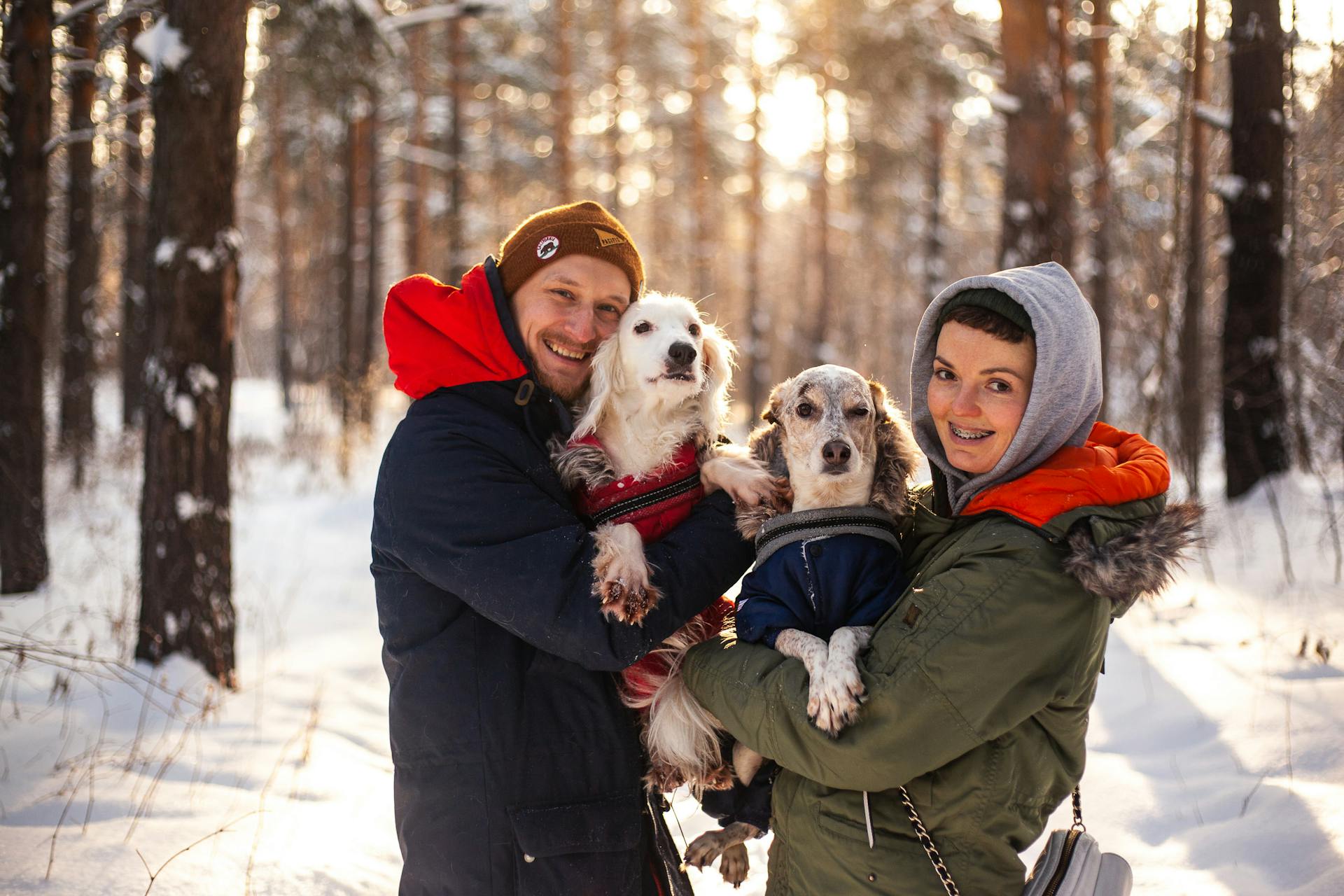
To become a K9 police officer, you'll need to meet the basic qualifications, which typically include being at least 21 years old, having a high school diploma or equivalent, and possessing a valid driver's license.
You'll also need to pass a physical fitness test, which may include tasks such as running, jumping, and carrying heavy objects. This is to ensure you can keep up with the demands of the job.
The selection process for K9 police officers often involves a written exam, a physical fitness test, and an oral interview. You'll want to prepare thoroughly for these assessments to increase your chances of success.
Qualifications and Requirements
To become a K-9 police officer, you'll need to possess certain essential traits. A genuine fondness for and interest in dogs is a must, as it will be evident during the interview process.
You'll also need to demonstrate patience and perseverance, as training a K-9 requires a calm and controlled approach. K-9 officers can't force desired behavior, and exercises must be repeated often before the K-9 learns proper execution.
Physical endurance is another crucial aspect, as you'll need to maintain stamina alongside the dog. Good physical condition is essential for this role.
To sum up the key qualifications, here are the main points:
- Attitude: a genuine fondness for and interest in dogs
- Patience and Perseverance: calm and controlled approach to training
- Physical Endurance: maintaining good physical condition
- Dependability: willingness to do manual labor for kennel management, feeding, and cleanliness
Handler Qualifications
To be a successful K-9 officer, you need to possess certain essential traits. Experience handling dogs isn't necessary, but personal characteristics play a huge role in the successful care and training of police dogs.
Attitude is a crucial factor, and you'll be expected to have a genuine fondness for and interest in dogs. This quality should be evident during the interview process. If not, you shouldn't be considered for the role.
Patience and perseverance are also vital. You can't force desired behavior on your K-9, and they won't learn as quickly as humans do. You'll need to maintain control without losing your temper, and exercises must be repeated often before your K-9 learns proper execution.
Physical endurance is another essential quality. As a K-9 officer, you'll need to maintain stamina along with your dog. Strive to maintain good physical condition to keep up with the demands of the job.
Dependability is crucial, as the welfare of your K-9 is entirely in your hands. You'll be responsible for manual labor like kennel management, feeding, and cleanliness. Failure in these responsibilities can result in the decline of the K-9 program.
Here are the key handler qualifications summarized:
- Attitude: Genuine fondness for and interest in dogs
- Patience and Perseverance: Ability to maintain control and repeat exercises often
- Physical Endurance: Ability to maintain stamina and good physical condition
- Dependability: Willingness to do manual labor and take responsibility for K-9 welfare
Current Requirements
To become a successful data scientist, you'll need a strong foundation in mathematics and statistics, which typically includes a bachelor's degree in a quantitative field.
A master's degree in data science or a related field is highly recommended, as it can provide advanced knowledge and skills in areas like machine learning, data visualization, and statistical modeling.
You'll also need to have proficiency in programming languages such as Python, R, or SQL, which are commonly used in data science.
Proficiency in data visualization tools like Tableau, Power BI, or D3.js can be a major plus in this field.
Experience working with large datasets and familiarity with data storage and management systems like Hadoop, Spark, or NoSQL databases are also highly valuable.
Most data science job postings require a minimum of 2-5 years of experience in a related field, such as data analysis or research.
Becoming a K9 Police Officer
To become a K9 police officer, you'll need to start by becoming a police officer. You'll typically need to work as a patrol officer for two years before being eligible for a K9 handler position.
Most police departments require K9 handlers to have an associate or bachelor's degree in criminal justice, and some may even require a master's degree. You'll also need to attend the local police academy, which can take around six months and include over 800 hours of training.
As you gain experience as a police officer, you'll be able to apply for a K9 officer opening at your police station. You may be required to attend specialized K9 handling courses, such as a 12-day Patrol Dog Handler Course or a Bomb/Drug Detection Dog Handler Course.
A fresh viewpoint: Police K9 Handler
Becoming an Officer
To become a police officer, you'll need to start by earning a degree in criminal justice, which can take a few years to complete. Many departments require an associate degree or a bachelor's degree in criminal justice.
You'll also need to take courses in basic criminal law, firearms safety, the apprehension of suspects, criminal procedures, and policing procedures. These courses will give you a solid foundation in the skills and knowledge you'll need to succeed as a police officer.
After earning your degree, you'll need to attend the local police academy, which can take around six months to complete. The Sacramento Police Academy, for example, is a 24-week program that includes 933 hours of training.
You'll need to complete the required training hours, which can vary depending on the department, but most require less than 800 hours.
On a similar theme: K9 Police Officer
Our Programs
Becoming a K9 police officer requires a significant amount of training and education. To become a K9 handler, you'll need to earn a degree in criminal justice, such as an associate's or bachelor's degree, and take courses in basic criminal law, firearms safety, and policing procedures.
The first step in becoming a K9 officer is to become a police officer, which typically requires attending a police academy and completing a training program that can last anywhere from several months to a year. For example, the Sacramento Police Academy is a 24-week program that includes 933 hours of training.
To become a K9 handler, you'll need to attend a K9 handling course, which can last from a few days to several weeks. These courses cover topics such as K9 case law, emergency first aid, and reading a dog's body language. For instance, Conifer Canine offers a 4-week Premier Handler school that covers a broad spectrum of knowledge.
A K9 team's success depends on the education and training of the handler, which is why it's essential to invest time and money in proper training. Conifer Canine recommends a minimum of 2 weeks of handler school for new handlers, with 4 weeks being ideal.
Here are some key areas of focus for K9 training:
- Narcotics detection: a crucial skill for police work, particularly in areas with high contraband activity
- Trailing: a necessary task for K9s, including trailing felons, elderly persons, and lost children
- Patrol work: a skill that requires a thorough knowledge of K9 case law, training, and deployment strategies
- Scent detection: training dogs to detect specific odors, such as explosives or narcotics
To become a well-rounded K9 team, it's essential to consider the following factors:
- Dog breeds: German Shepherds, Belgian Malinois, Dutch Shepherds, Labrador Retrievers, and German Shorthair/Wirehair Pointers are popular breeds for police work
- Training standards: realistic, life-like deployment standards and certification standards should be constantly evolving
- Certification: annual re-certification is essential to ensure the team remains up-to-date and effective
Career and Benefits
As a K9 police officer, you can expect a competitive salary. Sheriffs and deputy sheriffs, including canine deputies, earn an average salary of $65,790 per year, according to O*Net.
Salaries vary significantly between regions and states. For example, in Texas, sheriffs report an average salary of $64,370 per year, while in Illinois, canine deputies claim a median income of $86,130 per year.
Working as a K9 police officer can also bring you closer to your dog. During training, a dog in K9 training with its handler has better contact with and understanding of its owner.
Police Dog Training Benefits
Police dog training has numerous benefits for both dogs and their handlers. A dog in K9 training with its handler has better contact with and understanding of its owner.
Through training, a K9 officer will better understand their dog, and the police dog will flawlessly perform its duties. During work and practice, the handler will be able to improve their dog's performance rather than ruin it by doing something incorrectly.
A K9 Police officer will solve any behavior problems that the dog might be displaying, and will teach the handler how to correct these problems during work.
For more insights, see: Police Working Dogs
Officer Salary and Career
K9 handlers are part of a highly-trained and elite group of police officers, which can result in higher salaries.
O*Net notes that sheriffs and deputy sheriffs, including canine deputies, earn an average salary of $65,790 per year.
Salaries for K9 handlers vary significantly between regions and states.
In Texas, sheriffs report an average salary of $64,370 per year.
Illinois canine deputies claim a median income of $86,130 per year.
California K9 handlers earn an average of $104,160 annually.
Here's an interesting read: Salary of a K9 Police Officer
Frequently Asked Questions
How to be a canine 9 handler?
To become a canine handler, join the military and complete military police school, dog training, and earn certification as an active-duty dog handler. This career path requires dedication and a passion for working with dogs.
What are the pros and cons of being a K9 officer?
Being a K9 officer offers benefits like enhanced officer safety and search and rescue skills, but also comes with challenges like constant care and potentially hazardous situations. It requires a unique mindset, as a K9 officer must treat their partner as a trained colleague, not a pet.
How long does it take to train a K9 police dog?
K9 police dog training typically lasts 8-16 weeks, including initial patrol training and specialized detection training. Consistent training is then required to maintain their skills
Do K-9 officers train their dogs?
Yes, K-9 officers train their dogs daily on duty and dedicate an entire day each week to advanced training, including narcotics detection, suspect apprehension, and obedience. This rigorous training helps K-9 teams stay sharp and effective in their law enforcement roles.
What is a K-9 officer?
A K-9 officer is a law enforcement professional who works with a trained canine partner to detect and prevent threats, including explosives and suspicious activity. They conduct security sweeps and patrols to keep people and communities safe.
Sources
- https://www.policek9magazine.com/how-to-become-a-k9-officer/
- https://www.criminaljusticeprograms.com/specialty/canine-officer/
- https://www.dogtrainercollege.us/dog-training-courses/police-dog-training/
- https://isp.illinois.gov/AcademyTraining/Canine
- https://www.masterdog-training.com/training-a-dog/special/k9-police-dog-training/
Featured Images: pexels.com


